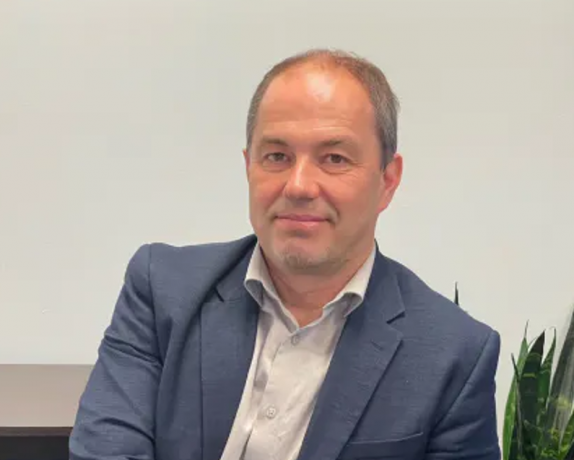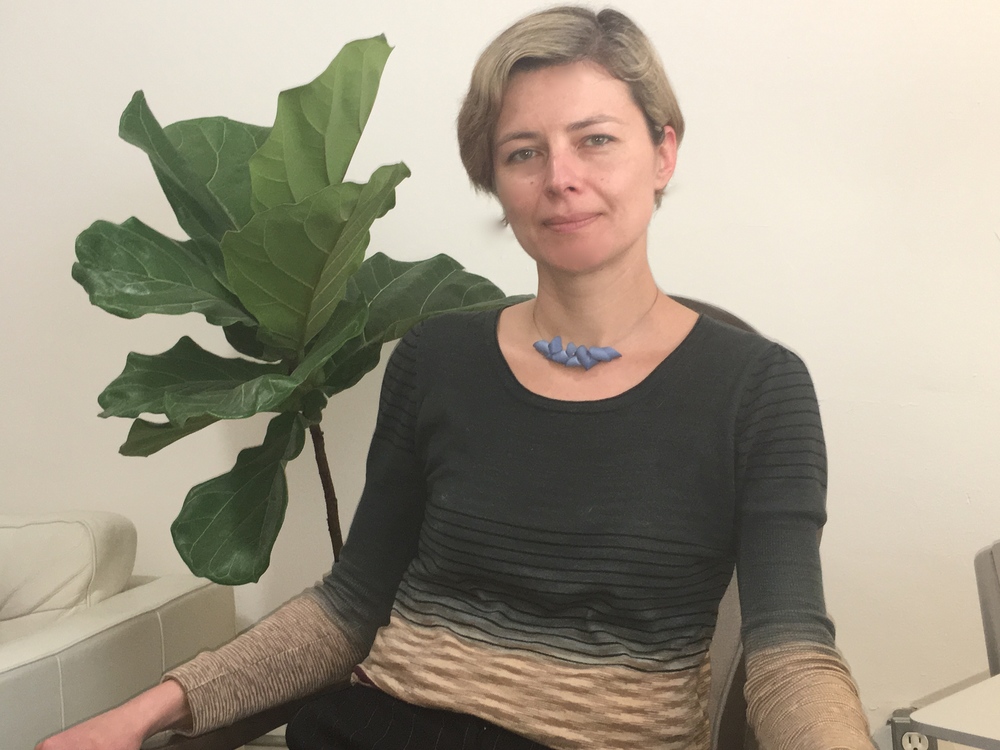If you have been told you have treatment-resistant...Read More
At Village TMS in New York City, we specialize in evidence-based ketamine therapy for those struggling with anxiety disorders, resistant depression, or mood disorders. Our customized treatment protocols offer rapid symptom relief when traditional antidepressants or behavioral therapy haven’t worked. If you’ve been searching for “Ketamine for anxiety NY,” our clinic provides compassionate care and cutting-edge results.
1. IV Ketamine Infusions
Intravenous ketamine infusions deliver low-doses directly into the bloodstream. Each 40-minute session is closely monitored for heart rate and blood pressure to ensure safety and a measurable treatment response.
2. SPRAVATO® (Esketamine) Nasal Spray
FDA-approved alternative for treatment-resistant depression, providing quick relief with minimal downtime. Our trained professionals supervise each session to optimize dosing and monitor your ital signs.
3. Intramuscular (IM) Injections
A convenient short-term solution for those seeking effective results with minimal clinic time. These low-dose injections offer lasting anxiolytic effects while supporting continued stability between sessions.
Rapid Relief: Rapid onset improvement within hours of treatment. Ketamine stimulates new neural connections in the brain, helping to ease both depressive symptoms and anxiety symptoms.
Science-Driven Results: Extensive systematic reviews and clinical trials show that ketamine works by modulating NMDA receptors and restoring balance in the glutamate system.
Safe & Supervised: Our team of healthcare providers follows a proven safety protocol during every session, minimizing potential side effects and maintaining a stable safety profile.
Comprehensive Healing: Pair ketamine treatment with cognitive behavioral therapy or mental health treatment to achieve long-term emotional stability and symptom relief.
Get help with depression today! It’s important to know that you are not alone.
Ketamine’s versatility addresses:
Major Depressive Disorder (MDD)
Postpartum Depression
PTSD & Anxiety Disorders
Chronic Pain & Fibromyalgia
OCD & Bipolar Disorder
Addiction Recovery Support
In recent years, studies have highlighted the effectiveness of ketamine for psychiatric disorders such as major depressive disorder, bipolar disorder, and post-traumatic stress disorder. By targeting glutamate pathways, ketamine promotes symptom reduction, reduces suicidal ideation, and supports a healthier response to stress.
We use low-dose protocols to ensure safety and minimize dissociative effects. While brief lightheadedness may occur, most patients find it subsides within minutes. Each session is conducted in a calm clinical setting, in the middle of Manhattan, by licensed healthcare professionals who track your vital signs and adjust your treatment plan for optimal comfort.
Consultation: Discuss your medical history and goals with Dr. Yuli Fradkin, our lead psychiatrist with 25+ years of expertise.
Custom Plan: Choose from IV, SPRAVATO®, or IM treatments, customized by our healthcare providers for your needs and treatment effects.
Integration Therapy: Post-treatment, our therapists help you apply insights from the ketamine experience to improve thought patterns and support lasting recovery.


As a psychiatric professional with over 25 years of experience, I am dedicated to providing top-quality care to my patients in New York City and Montclair, New Jersey. I have had the privilege of serving at some of the nation’s leading medical institutions, including Beth Israel Hospital in New York, Tufts Medical Center in Boston, and Yale Medical School in Connecticut.
In addition to my clinical work, I am also an assistant professor at Rutgers University, where I have the opportunity to share my knowledge and experiences with the next generation of healthcare professionals. I believe in the importance of continuing education and professional development, and I am committed to staying current on the latest advances in the field of psychiatry.
I am passionate about helping individuals and their loved ones on their journey towards mental wellness. Whether you are seeking support for yourself or a loved one, I am here to help. Thank you for considering my practice, and I look forward to working with you.

I have been practicing psychiatry for nearly twenty years, first in Vienna, Austria, where I had the honor of studying medicine, then here, in New York City.
I did a year of Geriatric Psychiatry fellowship which allows me to work comfortably with elderly patients.
I also did a year of fellowship at the New York Psychoanalytic Institute and published in the fields of psychotherapy research, dementia, and Seasonal Affective Disorder .
As a psychiatrist and medical doctor, I can provide both medication management and psychotherapy, as well as non-medication treatments such as supplements and life style advice.
I offer psychopharmacology and psychotherapy services as well as holistic treatments based on scientific studies to significantly improve my patients’ well-being.
Having lived in Moscow, Vienna and New York for many years, I appreciate the beauty and relativity of all things human, and can provide treatment in these three languages.
If you have been told you have treatment-resistant...Read More
If you have tried antidepressants, adjusted the dosage,...Read More
If you are exploring Transcranial Magnetic Stimulation as...Read More
Ketamine assisted therapy has gained attention as a...Read More
Finding reliable TMS providers near me is no...Read More
Anxiety disorders affect millions of adults across New...Read More
Take this next step, we’ll help with the others.
We proudly serve patients throughout:
Manhattan: Union Square, Chelsea, Flatiron, Greenwich Village, West Village, East Village, Midtown, Upper East Side, Upper West Side, Harlem, Tribeca, SoHo
Brooklyn & Queens: Brooklyn Heights, Williamsburg, Park Slope, Long Island City, Astoria, Forest Hills
New Jersey: Hoboken, Jersey City, Weehawken, West New York, North Bergen, Fort Lee, Edgewater, Secaucus, Newark, and surrounding South Bergen communities
If you’re searching for TMS therapy near Manhattan, Brooklyn, Queens, or Hoboken, our centrally located NYC office makes treatment convenient and accessible.
Ketamine for anxiety NYC targets NMDA receptors and activates the glutamate system, encouraging new neural pathways that regulate mood disorders and reduce anxiety symptoms. This mechanism helps patients find relief faster than with traditional antidepressants or selective serotonin reuptake inhibitors.
Many patients notice a significant reduction in symptoms within hours of their first single dose. The rapid onset of relief makes ketamine a preferred option for those facing treatment-resistant depression or severe anxiety that hasn’t improved with other treatment options.
Yes. When provided under medical supervision, ketamine has a proven safety profile supported by double-blind and randomized controlled trial data. Our staff monitors your heart rate, blood pressure, and comfort throughout your session.
Ketamine can support patients with social anxiety disorder, panic disorder, obsessive-compulsive disorder, bipolar disorder, and refractory anxiety disorders. It also helps those with major depression, chronic pain, and treatment-resistant anxiety.
The anxiolytic effects of a single treatment may last several weeks. Maintenance sessions are available for sustained results and long-term mood stability.
Absolutely. Many patients combine ketamine infusion therapy with behavioral therapy or cognitive behavioral therapy for the best results. This combined approach strengthens neural pathways and promotes sustainable improvement.
Temporary dissociative effects, lightheadedness, or mild blood pressure increases may occur but fade quickly. All treatment sessions are monitored in a professional healthcare setting to minimize risks and ensure comfort.
Individuals who have not responded to traditional treatments or have treatment-resistant depression or treatment-resistant anxiety may benefit from ketamine therapy. A review of your medical conditions and treatment history helps determine suitability.
When administered in a clinical setting and at low doses, ketamine poses no addiction risk. Our clinicians use controlled dosing to ensure therapeutic benefit without dependency.
Your first step is to schedule a free consultation at Village TMS. We’ll review your medical history, evaluate your symptoms, and create a customized treatment plan that supports healing and improved quality of life.
We use cookies to improve your experience on our site. By using our site, you consent to cookies.
Manage your cookie preferences below:
Essential cookies enable basic functions and are necessary for the proper function of the website.
These cookies are needed for adding comments on this website.
Google reCAPTCHA helps protect websites from spam and abuse by verifying user interactions through challenges.
Google Tag Manager simplifies the management of marketing tags on your website without code changes.
You can find more information in our Cookie Policy and Privacy Policy.